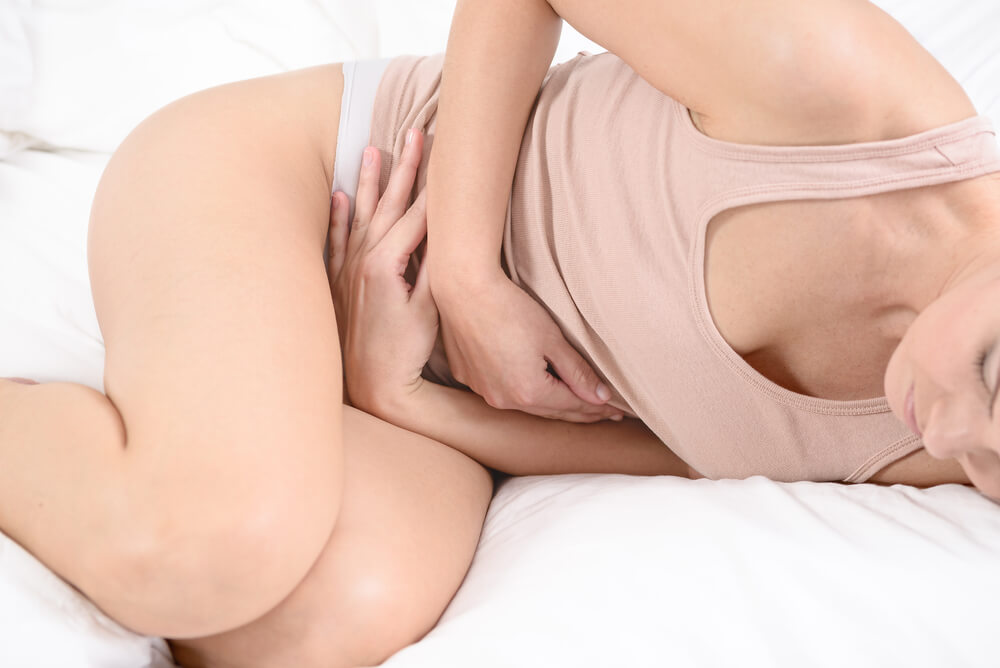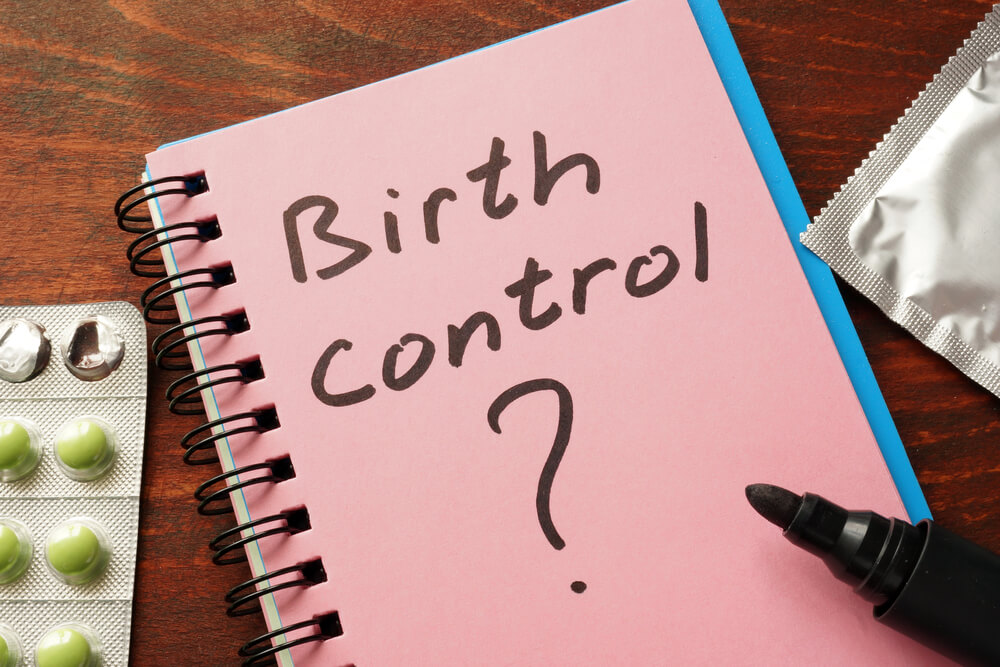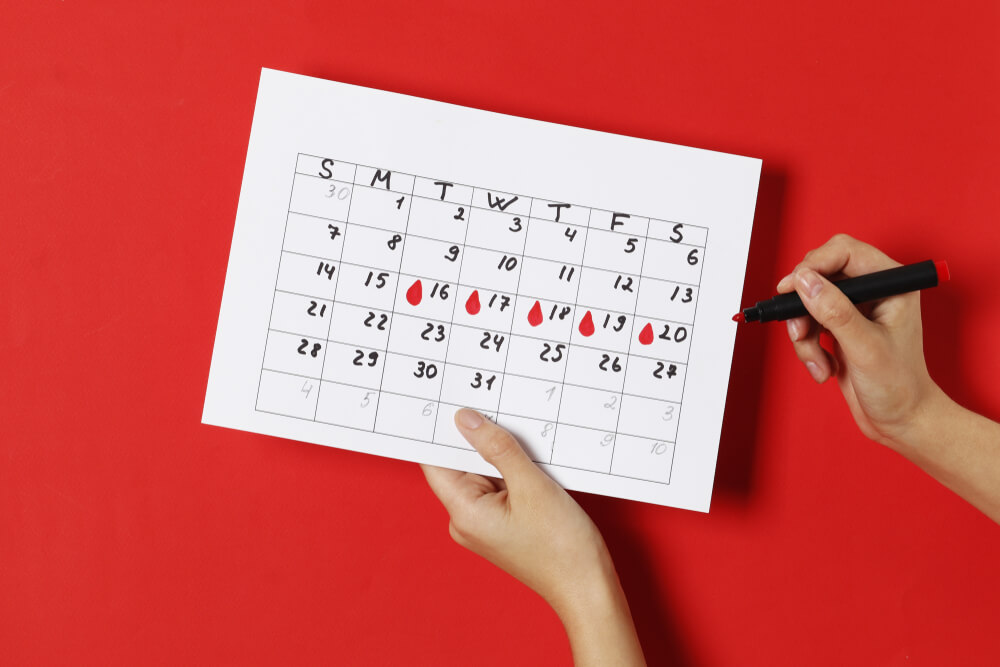Experiencing one or two heavy flow days at the onset of your period is normal. Who hasn’t noticed a couple of blood clots on their pads when they finally make it home or leaked through their best tampons? Who hasn’t wondered how to reduce period blood or when should you go to the hospital for heavy menstrual bleeding? However, if you wake up in the morning and notice you’ve bled through your pad or your best tampon and there is blood on your sheets, you may suffer from chronic heavy periods. If that’s the case, it’s important to do all you can to learn how to make your period lighter.
What’s Considered Heavy Menstrual Bleeding?
Believe it or not, 20% of women experience heavy periods. Although it’s a common concern, some women can bleed for more than a week.
The technical term for this condition is menorrhagia. All women are unique, and so are their periods. This makes it hard to know if what you’re experiencing is normal.
Half of women who suffer from menorrhagia do not realize they have it. They are unaware of ways to make heavy periods lighter and some don’t know it’s an option.
The best way to determine if your heavy period is normal is to talk to a medical professional you trust, like our specialist Joanna Bedell MD. But, in the meantime, consider these symptoms from the American College of Obstetricians and Gynecologists for more clarity:
- Bleeding for 7 days or more
- Blood that soaked through your tampon and pad in an hour
- Changing your tampons or pads at night
- You need extra protection to prevent leaking
- Your blood clots are, at the very least, the size of a quarter
Why Do I Suffer From Heavy Menstrual Bleeding?

There’s usually a reason you’re suffering from issues with your menstruation. Thankfully, most causes of menorrhagia are treatable. But, our unique physiologies mean the best way to know how to make period lighter is by seeing a menstruation specialist like Joanna Bedell MD.
Hormonal Imbalance
When your hormones (estrogen and progesterone) are unbalanced, a symptom can be menorrhagia. In these cases, the hormonal changes cause the uterine lining to get thicker. When this thick lining sheds during your monthly cycle, it is possible to experience larger blood clots and heavier blood flow.
Changes to Birth Control and Other Medications
Some medications, like blood thinners, cause us to have heavier periods. Similarly, certain birth control can affect bleeding as well, such as an IUD or intrauterine device. In this specific case, IUDs can cause heavy periods for up to 6 months after insertion (but this usually resolves and heavy bleeding is not seen in most users).
Uterine Fibroids
These non-cancerous growths occur within the uterus. Their sizes vary and range from as small as a grain of sand or as large as a melon. If the fibroids continue to grow, bleeding can become heavier and cause severe cramping. This is why doctors, like Joanna Bedell MD, may recommend removing fibroids to reduce heavy blood flow.
Life changes
Human bodies are sensitive to change. It is possible to experience heavy menstrual bleeding after childbirth or pregnancy, or even during perimenopause. It is also known that stress can affect our periods too.
Endometriosis
This painful condition causes the uterine lining to grow abnormally. Additional symptoms include heavy menstrual bleeding, longer periods, and cramping. Also, this condition can develop to be a fertility problem, so don’t forget to schedule an appointment regularly.
How to Stop Period Bleeding

The following are great options for those looking to learn how to reduce period blood:
- Birth Control
Birth control is by far one of the best ways to control heavy periods. It causes the lining of the uterus to become thinner which leads to a reduction in blood loss during the menstrual cycle.
Birth control regulates the length of your cycle too. It can also help provide relief from menstrual cramps and may even make your period go away completely depending on the type you use.
- Prescription NSAIDs
NSAIDs ( Nonsteroidal anti-inflammatory drugs) thin the uterine lining, reducing heavy bleeding in the process, and may help with relieving painful menstrual periods.
- Surgery
While usually considered a last resort, surgery is occasionally necessary in patients with heavy periods. Surgeries can be anywhere from a hysteroscopy to an endometrial ablation to a hysterectomy. You should further discuss these options with your trusted gynecologist.
- Change your diet
Iron-rich foods help prevent anemia and should be added to your diet if you are experiencing heavy periods. Some of these foods include green leafy vegetables, seeds, nuts, meat, beans, and seafood.
Should This Worry Me?
If your heavy period causes you to miss school, work, school, or social activities, you may be suffering from menorrhagia. Furthermore, heavy bleeding can cause iron-deficiency anemia which leads to lightheadedness, tiredness or fatigue.
Heavy periods are also associated with anxiety and depression. If you’re suffering from any of the above symptoms, it’s time to take control of your life. You no longer have to deal with heavy periods and their accompanying issues.
At New Age Women’s Health, Dr. Joanna Bedell, Dr. Sarah Bedell, and Dr. Victoria Bedell can diagnose the reason behind your heavy periods and recommend effective treatment options. If you don’t know whether the things you experience during your period are normal, just ask. We’ll be happy to help you stop planning your life around uncomfortable and inconvenient heavy periods





